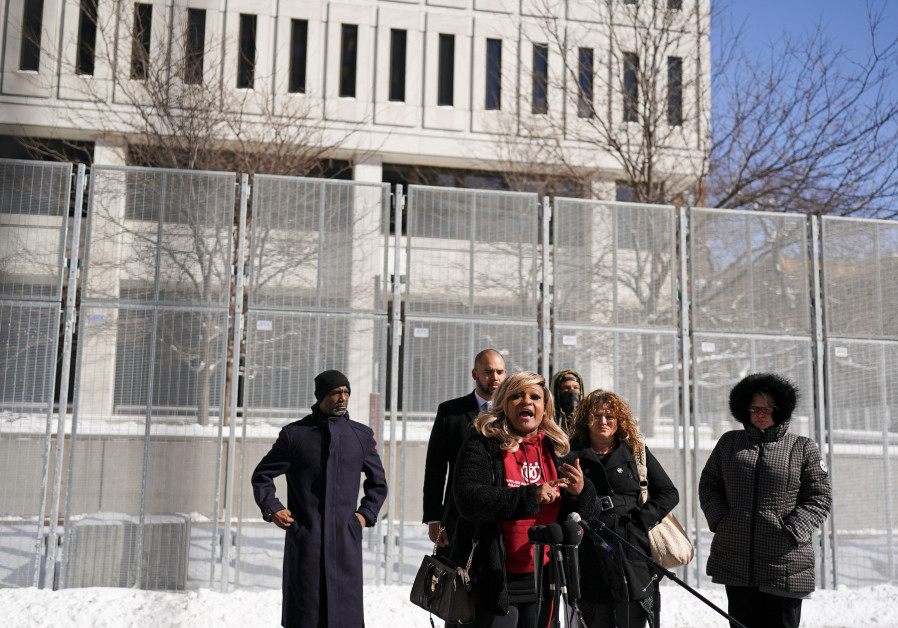Three former Minneapolis police officers were found guilty on Thursday of depriving George Floyd of his rights by failing to give aid to the handcuffed Black man pinned beneath a colleague's knee.
The jury's verdict against Tou Thao, 36; J. Alexander Kueng, 28; and Thomas Lane, 38, came in a case that hinged on when an officer has a duty to intervene in another's misconduct. It is a rare instance of police officers being held criminally responsible for a colleague's excessive force.
Federal prosecutors argued in the US District Court in St. Paul that the men knew from their training and from "basic human decency" that they had a duty to help Floyd as he begged for his life before falling limp beneath the knee of the defendants' former colleague, Derek Chauvin.
Floyd's killing sparked protests in cities around the world against police brutality and racism.
Chauvin, who is white, was convicted of Floyd's murder at a separate state trial last year and sentenced to 22-1/2 years in prison. Although race was not a part of the state or federal charges, Chauvin's conviction was seen as a landmark rebuke of the disproportionate use of police force against Black Americans.

In December, Chauvin pleaded guilty to the federal charge of violating Floyd's rights during the arrest in a Minneapolis intersection on May 25, 2020.
Under Chauvin's plea agreement, federal prosecutors are expected to ask at an as-yet unscheduled hearing for a 25-year sentence to run concurrently with his state prison sentence.
His three former colleagues face years in prison on the federal charges and are also due to stand trial in Minneapolis in June on state charges of aiding and abetting Floyd's murder.
BYSTANDER VIDEO
Widely seen cellphone video showed Chauvin, 45, grinding his knee on Floyd's neck for more than 9 minutes as horrified onlookers yelled at him to get off.
Thao could be seen steps away from Chauvin, telling onlookers to stay on the sidewalk and rebuffing their concerns. Kueng and Lane were to Chauvin's right, pinning down Floyd's buttocks and legs.
All three testified in their own defense. Each acknowledged they knew they had a duty of care to people in their custody.
But they and their lawyers told jurors they did not realize at the time that Floyd was in dire need of medical aid or that Chauvin's use of force was excessive and so they could not have been acting with deliberate indifference.
To rebuff this, prosecutors repeatedly played videos showing Floyd's distress was plain to bystanders, including children and an off-duty firefighter, who shouted that Floyd was passing out and begging the police to check his pulse.
The three defendants all described deferring to the authority of Chauvin, the most senior officer at the scene with 19 years at the Minneapolis Police Department. They said they assumed he must know what he was doing. Read full story
Kueng and Lane, who first handcuffed Floyd on suspicion of using a fake $20 bill in a nearby store, also noted they were rookies only a few days out of training, which lasted more than a year. Thao had been on the force for eight years.
In a closing argument before deliberations began, LeeAnn Bell, a federal prosecutor, said there were no "free passes" under the US Constitution, which guarantees that people do not face excessive force or be deprived of medical care when the government takes them into custody.
"There's no pass for, 'I was a brand-new officer.' There's no pass for, 'It would have been hard or uncomfortable to speak up,'" she said. "Our constitution weighs the risk and our constitution says you must act."
Medical experts have testified that Floyd almost certainly would have survived the arrest if he had been rolled onto his side once the officers restrained him, as the officers acknowledged they had been taught to do.
